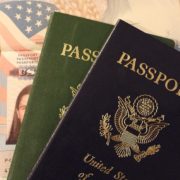The pandemic’s impact on the immigrant community presents more public health and financial risks for undocumented individuals and their families
Since the beginning of President Donald Trump’s presidency, his administration has made tightening immigration a key part of its agenda, including imposing restrictions on the public charge rule.
The public charge rule, which has been a part of immigration law for decades, posits that the government could deny a green card to any undocumented resident of the United States who has utilized one or more channels of federal benefits.
Historically, administrations past have rarely used the rule, but the Trump administration has made the rule a key step in the immigration process.
Currently, immigrants seeking settlement in the U.S. must prove they will not become public charges by providing proof that they could earn at least $41,000 a year.
Experts like Dr. Daniel Turner-Lloveras believe that the public charge rule could put low-income immigrant families at a huge disadvantage at a time of economic and public health precarity.
Though the public charge rule was implemented on February 24 of this year, immigrant families across the country have stopped using public benefits (even those that don’t fall under the public charge criteria like free school lunches) for fear that it would hurt their chances at permanent residency in the U.S.
In the last two years, enrollment in Medicaid and the Children’s Health Insurance Plan — two key public health insurance options for undocumented immigrants — has dropped 31%. Additionally, one in three low-income immigrant families are struggling to survive because they are either unaware or avoiding public benefits like health care and food stamps.
“[Even] if it only affects one person, it then trickles down and eventually affects the entire family. We are only as strong as our weakest link,” Turner-Lloveras, assistant professor of medicine at UCLA, said during a press briefing with ethnic media on Friday, June 26.
Turner-Lloveras added that the U.S. will not be able to flatten the curve if undocumented communities resist health care because of the fear that it will hurt their citizenship chances
“Avoidance of these programs [is] particularly worrisome in families with children because the entire family faces the financial hardships, the psychological distress and problems in health care access,” he shared.
However, as the coronavirus continues to spread and numbers spike, federally funded community health centers and hospitals that offer COVID-19 testing and treatment are continuing to see any and all patients regardless of their immigration status.
And, any COVID-19 treatments and tests are not included in the public charge criteria, but patients should call clinics about the availability of tests before making a visit.
“Testing treatment and preventative care related to COVID-19 will not be included in a public charge determination, even if the health care services are covered by Medicaid,” said Madison Allen, senior policy analyst and attorney with the Center for Law and Social Policy.
Allen also shared various public programs that undocumented families are entitled to like Pandemic EBT, a nutritional resource for low-income families in 40 states. For young children who no longer receive free lunch from their schools can qualify for the program, and in California, families can get up to $365 per child who qualifies.
Allen advises undocumented individuals and families to know their rights and study the public charge criteria before letting go of certain benefits that may not even be applicable.
“We encourage everyone, including immigrants to seek the care that they need during this difficult time, and we want to make sure that immigrant families are aware that health care workers should not be asking them information about their immigration status,” Allen added.






